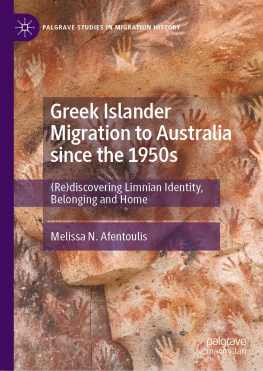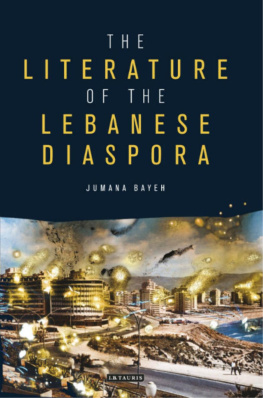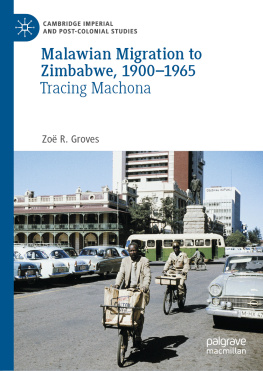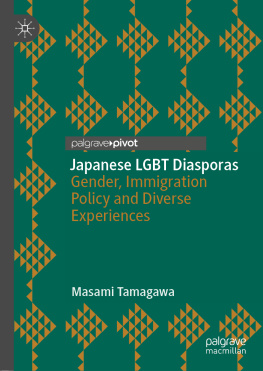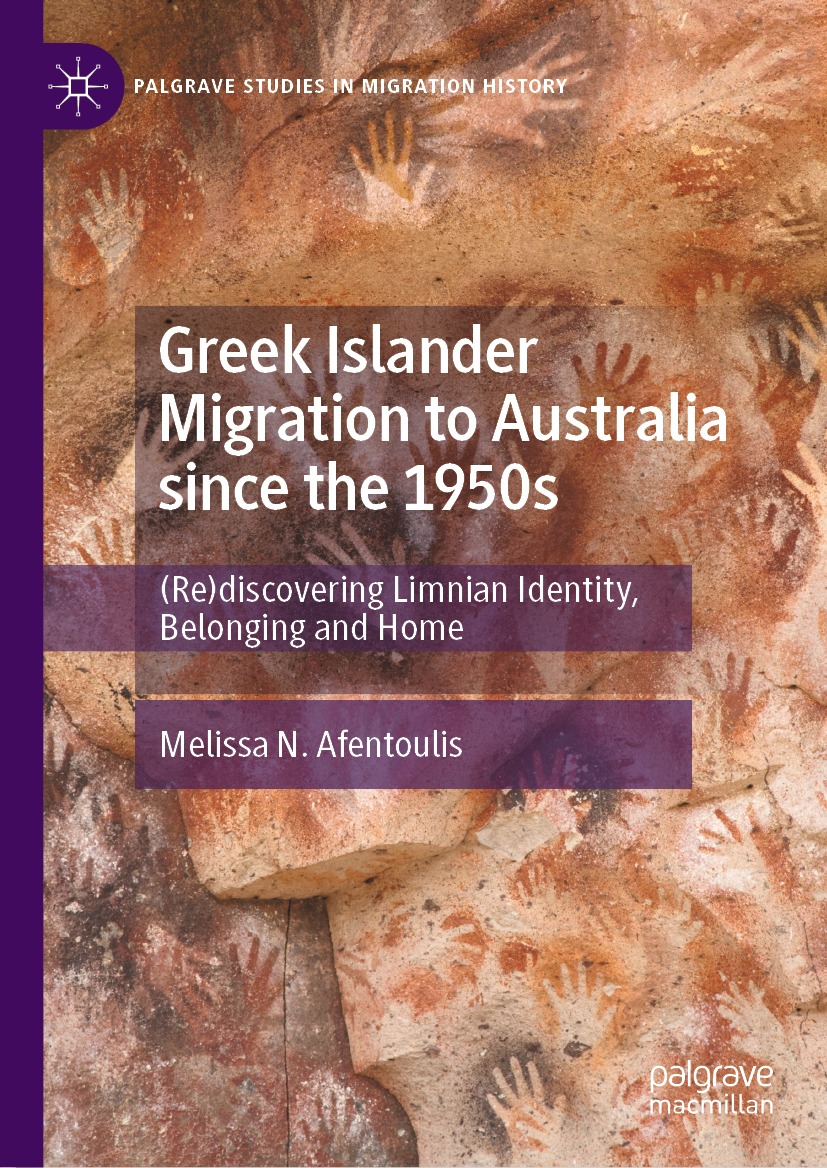Palgrave Studies in Migration History
Series Editors
Philippe Rygiel
Ecole Normale Suprieure de Lyon, Saint-Germain-du-Puy, France
Per-Olof Grnberg
Lule University of Technology, Lule, Sweden
David Feldman
Birkbeck CollegeUniversity of London, London, UK
Marlou Schrover
Leiden University, Leiden, The Netherlands
This series explores the history of migration, from antiquity to the present day and across a wide geographical scope. Taking a broad definition of migration, the editors welcome books that consider all forms of mobility, including cross-border mobility, internal migration and forced migration. These books investigate the causes and consequences of migration, whether for economic, religious, humanitarian or political reasons, and the policies and organizations that facilitate or challenge mobility. Considering responses to migration, the series looks to migrants experiences, the communities left behind and the societies in which they settled. The editors welcome proposals for monographs, edited collections and Palgrave Pivots.
More information about this series at https://link.springer.com/bookseries/15185
Melissa N. Afentoulis
Greek Islander Migration to Australia since the 1950s
(Re)discovering Limnian Identity, Belonging and Home
1st ed. 2022

Logo of the publisher
Melissa N. Afentoulis
Melbourne, VIC, Australia
Palgrave Studies in Migration History
ISBN 978-3-030-85660-1 e-ISBN 978-3-030-85661-8
https://doi.org/10.1007/978-3-030-85661-8
The Editor(s) (if applicable) and The Author(s), under exclusive license to Springer Nature Switzerland AG 2022
This work is subject to copyright. All rights are solely and exclusively licensed by the Publisher, whether the whole or part of the material is concerned, specifically the rights of translation, reprinting, reuse of illustrations, recitation, broadcasting, reproduction on microfilms or in any other physical way, and transmission or information storage and retrieval, electronic adaptation, computer software, or by similar or dissimilar methodology now known or hereafter developed.
The use of general descriptive names, registered names, trademarks, service marks, etc. in this publication does not imply, even in the absence of a specific statement, that such names are exempt from the relevant protective laws and regulations and therefore free for general use.
The publisher, the authors and the editors are safe to assume that the advice and information in this book are believed to be true and accurate at the date of publication. Neither the publisher nor the authors or the editors give a warranty, expressed or implied, with respect to the material contained herein or for any errors or omissions that may have been made. The publisher remains neutral with regard to jurisdictional claims in published maps and institutional affiliations.
Cover illustration: Bettina Strenske/Alamy Stock Photo
This Palgrave Macmillan imprint is published by the registered company Springer Nature Switzerland AG
The registered company address is: Gewerbestrasse 11, 6330 Cham, Switzerland
To my grandchildrenMai Clara, Vi Allegra and Marco Anh.
You are my anchor in life.
Foreword
The history of the Greek diaspora and Greek migration around the globe remains an under-researched area of study. While publications have continued to emerge in the field, there are many aspects of this ongoing story which demands further attention and the scrutiny of scholars. One such aspect is the specific experience of the migration of Greek Islanders who, as a specific group, can direct us to the particularities and peculiarities of the migration experience.
In Greek Islander Migration to Australia since the 1950s: Re/discovering Limnian Identity, Belonging and Home, Melissa Afentoulis tackles the themes of identity, belonging and home to capture the complexity, challenges and connections of transnational exchanges in the unique community from the island of Limnos. The coming and going, arrivals and departures over several generations of the Limnian community form the basis of this magisterial study.
Drawing on the richness and power of oral history, this compelling work navigates the intricacies and interconnections between ethno-regionalism, gender, family, intergenerational continuity, the ancestral property and questions of belonging. The examination of transnational identities is captured through the under-considered, but vital aspect of migration history of those-who-left and those-who-stayed-behind. Looking beyond the first generation, the second generation and its transnational identity is shown to be forged in new and distinctive ways. This social and cultural history is a dynamic study, alert to the multi-layered and complicated story of islander migration.
On a broader scale, the contribution of Greek Islander Migration to Australia since the 1950s is to reconceptualise Australian history and its migration legacies, which are profound and deep. The post-war generation that Afentoulis discusses transformed Australia, socially, politically and culturally after 1945. The modern Australia that emerged did so with the far-reaching influence of Greek migrants. This study of the Greek diaspora equally contributes significantly to understanding a fundamental dimension of Greek modern history. This diasporic community continues to engage with meanings of Greek identity, belonging and culture inside and outside of Greece.
Greek Islander Migration to Australia since the 1950s is a meticulously researched, perceptive, fascinating study and a work of significant interpretive power. It tackles questions associated with migration which remain with us on a global scale. It is a timely reminder that all migrations have a long history and equally long legacy. At its core, it beautifully captures the very heart of migration as a human experience, which casts long shadows through the profound challenges and fluctuating vagaries it presents to those who experience it and who remember it.
Joy Damousi FASSA FAHA, Professor of History
June 2021
Preface
The story of migration is a story of humanity. Our migration experiences are intertwined, connected and can often come full circle with new generations. The discipline of history can play a vital role in facilitating the voice of those often invisible and least able to be heardmigrants, women and the elderly are such examples. The voices that speak in this book are authentic and genuine and capture universal themes and human aspirations. What makes this book different is its conceptual approach, examining critical themes of identity and belonging and home through the eyes of an immigrant case study of Greek islanders and their descendants: the second generation. The Limnian islander migration experience is not only an intergenerational story but also a transnational one that includes the voices of those-who-stayed-behind. The expressive language, emotions and perceptions generate a dynamic between the two groups, illuminating a complex and nuanced picture of the longevity of the migration experience which transforms lives and perpetuates collective memories of those-who-left and those-who-stayed-behind, even though their worlds collide because, in reality, their lives have changed greatly as a result of migration. The transnational second generation group of Limnians have nevertheless re/discovered their identity and belonging and have redefined their sense of home as a result of return visits to the ancestral home, visits that have in various ways significantly and permanently changed them. This book highlights the thread that binds generations of migrants to their ancestral roots and the unique identity that defines islanders through the experience of migration and a new life in the diaspora.

